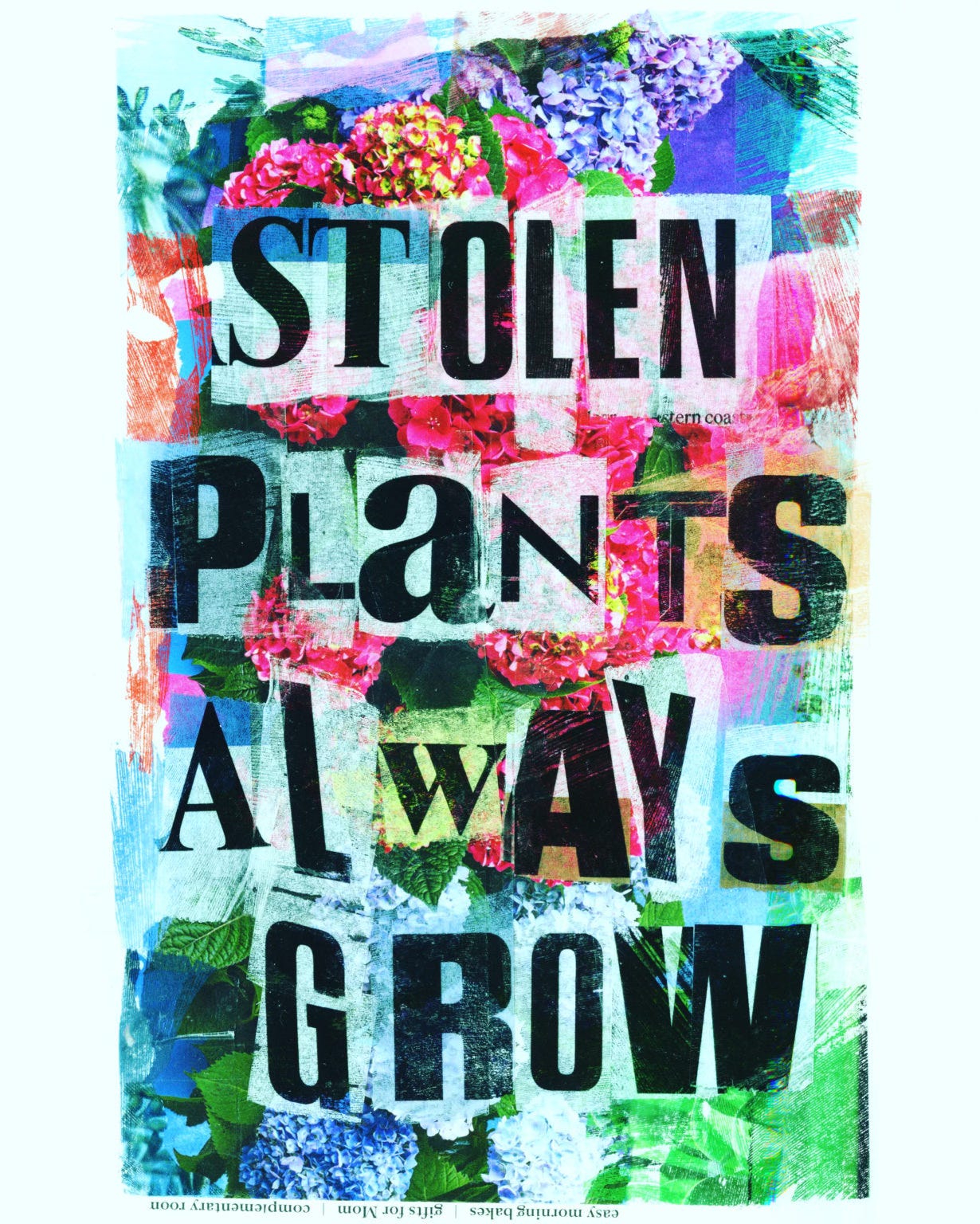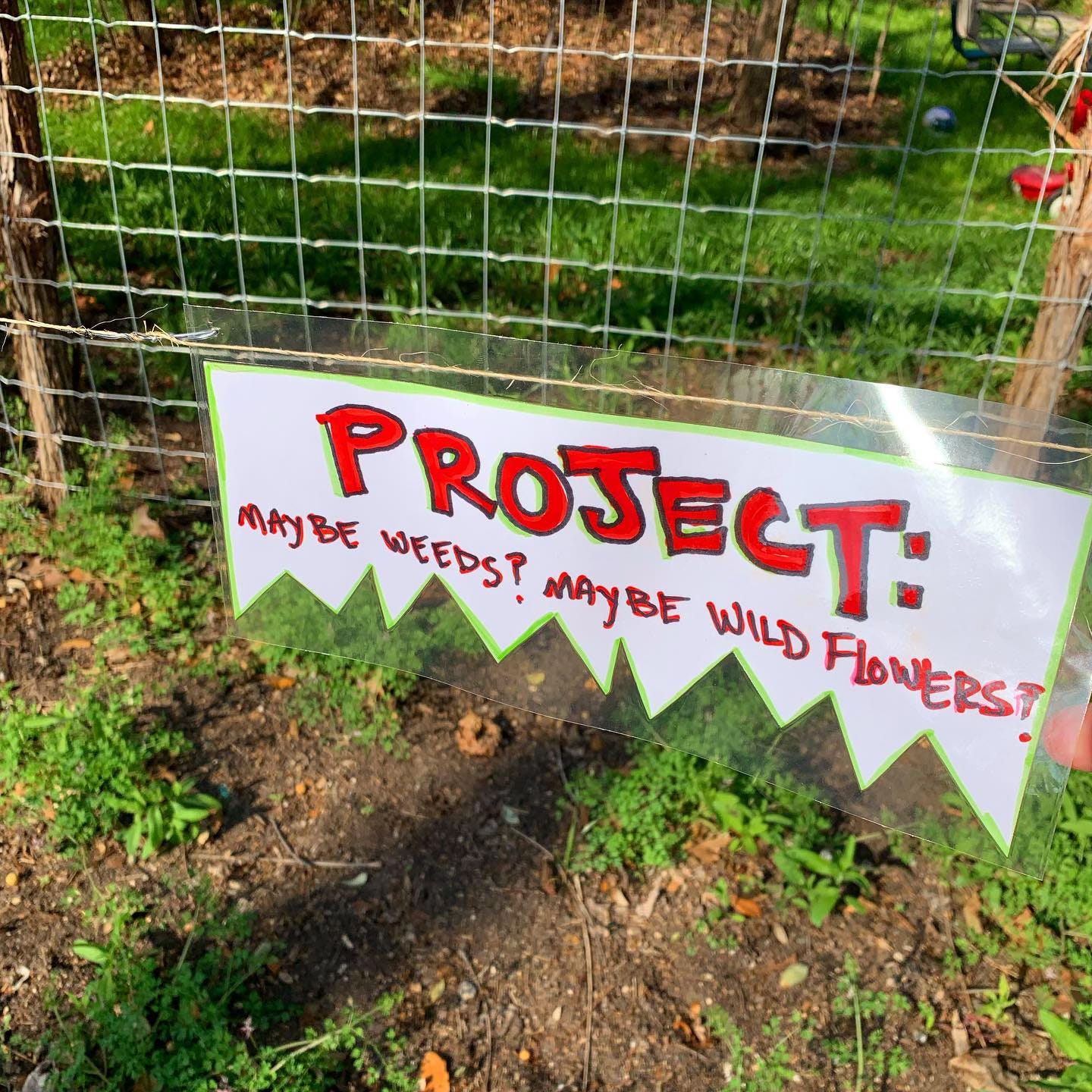
“The gardener digs in another time, without past or future, beginning or end. A time that does not cleave the day with rush hours, lunch breaks, the last bus home…”
—Derek Jarman, Modern Nature
Hey y’all,
Last Tuesday when I wrote to you about 3 gardening metaphors for creative work Meg’s plants were all in the studio avoiding the freeze. Today they’re out on the deck getting soaked in the rain. I’m sitting here in the studio still thinking about gardening. Let’s add some more metaphors to our compost heap, shall we?
Here are 7 more:
1. Stolen plants always grow!
In a letter to a friend, Beatrix Potter wrote:
Mrs Satterthwaite says stolen plants always grow, I stole some ‘honesty’ yesterday, it was put to be burnt in a heap of refuse! I have had something out of nearly every garden in the village.
Elsewhere, she said she was relieved when people offered her plants. “I don’t feel like such a robber of the village gardens.”
My wife routinely picks up clippings and fallen plant parts off the road when we go on our daily walks and brings them home and propagates new plants from them, so I was delighted to discover that there’s a term for it called “proplifting.”
It turns out that as with creative work, so with plants — there’s a line between good theft and bad theft! (And the line is not always clear.)
2. Weeds or flowers?
Here’s a wonderful sign I saw in a front yard while walking my neighborhood. This is exactly how I feel when I’m tossing out seeds at the beginning of a creative project: Are these weeds or are they flowers? I guess we’ll see.
But what is a weed? Emerson, ever a fan of a gardening metaphor, said it was “a plant whose virtues have not yet been discovered.”
There’s a wonderful story in John Cage’s Silence:
“George Cantor had an iris garden, which he improved each year by throwing out the commoner varieties. One day his attention was called to another very fine iris garden. Jealously he made some inquiries. The garden, it turned out, belonged to the man who collected his garbage.”
One man’s trash is another’s treasure, and a weed in one context is a flower in another.
3. Beautiful things grow out of the slime and muck.
Here’s how Brian Eno (who sees his role as a gardener) puts it:
Beautiful things grow out of shit. Nobody ever believes that. Everyone thinks that Beethoven had his string quartets completely in his head—they somehow appeared there and formed in his head—and all he had to do was write them down and they would be manifest to the world. But what I think is so interesting, and would really be a lesson that everybody should learn, is that things come out of nothing. Things evolve out of nothing. You know, the tiniest seed in the right situation turns into the most beautiful forest. And then the most promising seed in the wrong situation turns into nothing. I think this would be important for people to understand, because it gives people confidence in their own lives to know that’s how things work.
Henry David Thoreau became much less depressed about things when he considered how the white water-lily “show us what purity and sweetness reside in, and can be extracted from, the slime and muck of earth.”
Keep reading with a 7-day free trial
Subscribe to Austin Kleon to keep reading this post and get 7 days of free access to the full post archives.






